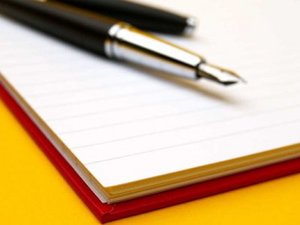The perfect resume uses an attractive format to outline your skills, accomplishments, and experiences. It needs to catch the eye of your potential employer, while briefly summarizing your best qualities as a worker and a person. In most cases that one sheet of paper (I recommend only one page) is the only proof of your existence in the eyes of the employer. In other words, you want to make a good first impression.
It’s true that a resume is designed to breifly describe you as a worker and a person, but the main idea behind your resume is simply this: its the key, if molded properly, that will get you in the front door. Excuse my cheasy inspirational methaphors, but its true. At this point in time your most likely unemployed and thats why you’re looking for a job. So, in essence your working for yourself and your trying to sell yourself to the employer. Make him or her believe you are the best fit for the job.
The Basics
Every resume MUST include adequate contact information. This means at the top you will put down your name, address, telephone number, and nowadays its a good idea to include an email address. All this information must be correct because if the employer calls the wrong number while trying to reach you, chances are pretty good he or she won’t go looking you up in the phone book . Make sure your information is accurate. And, by the way, if your email address is something quarky like [email protected] don’t include it. An option would be to make another email account, a more professional one like [email protected]. Something that won’t offend anyone.
Another essential element to all resume’s is the front graph, or first paragraph, briefly describing yourself. Common labels heading the graph are titles like “summary” or “profile. In this section use short, punchy statements that you would use to highlight the benefits of a common household product. Because that’s what you are: a product, and with the help of the right salesperson the employer will want to buy into you. (Let’s face it, we’re all salespeople to one extent or another) Avoid wordy sentences, and actually I recommend avoiding sentences at all. Instead of saying “I increased the sales..” I’d go ahead and leave the subject behind, “Increased the sales…” It’s genreally assumed by most employers that you are the subject of your own resume. Plus too many I did this and I did that’s looks like your bragging and is a major turnoff.
Below the Front Graph
After the front paragraph your resume takes on the form of a list, highlighting your highest achievements. It’s almost like a “to-do” list” but its more like a “to done” list because its made up of things you’ve already accomplished. I’d recommend different sections for your highlights, professional experience, special skills and education. And it doesn’t have to be in that particular order. In fact, you may want to move your “special skills” to the top, right beneath the “summary” or “profile,” especially if those skills relate to the job at hand, which they probably should.
The highlight section is pretty self explanatory. Its used to highlight your most crowning achievements. You do this in a list using numbers or bullets, don’t be afriad to get creative but at the same time keep it professional. A perfect example of this would be if you were a recepient of an academic award or officially recognized by some high ranking official. But say, if you won the batting title of your highschool baseball team junior year, although this may be a credible achievement, its not worth mentioning unless you’re applying for a position as a hitting coach. It’s important to emphasize those tools that are most pertinent to the job at hand.
Listing you work experience and your education should be the easiest part of building your resume. While the other sections required mixing and matching words and recalling lost memories of long ago achievements, your work experience and education are concrete facts. I’d recommend listing these two categories in reverse chronological order. Listing your most recent job title or graduation first.
No how to guide would be complete without an example. Below I did the best I could to illustrate an adequate resume. It’s going to appear a little bland in this format, but remember these are just the essentials to help you through the process.
FORREST R FREEMAN (center the name and contact information)
19 Freeman Lane, Portland, ME 0999
phone: 232-XXXX email: [email protected]
SUMMARY (left justified)
Graduated in December 2006 from University of Southern Maine (USM) with a bachelor’s degree in the arts of media studies. Balanced studies with four-year baseball career at USM. Has extended experience with sports and other recreational activites. Excellent interpersonal skills and ability to relate to client. Polished writing skills with educational background and outside publications to show for it.
SPECIAL SKILLS
* News releases and media relations
* Sporting event coordinator
* Customer relations
* Strong work ethic
HIGHLIGHTS
* Member of All-American Scholar Association
* Four year recepient of William B. Wise Scholar Athlete Award
* Earned Dean’s list for four years
* Published freelance writer in local newspapers
PROFESSIONAL EXPERIENCE
Sports Director, Sports Herald, Portland, Maine Jan XX – Mar XX
Event Staff Coordinator, USM, Gorham, Maine Sep XX – Dec XX
Sports Information Asst, USM, Gorham, Maine Jan XX – May XX
EDUCATION
BA, Media Studies / Writing Intensive, University of Southern Maine, Gorham, Maine
Guimond High School, 315 Main Street, Falmouth, Maine
